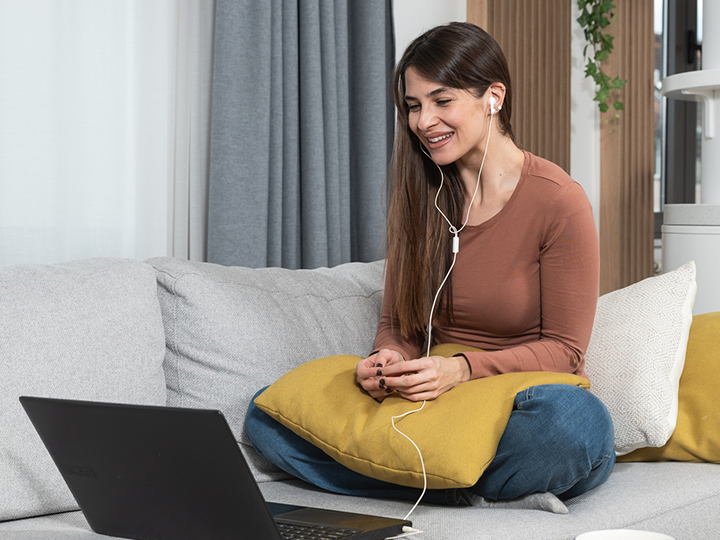Starting Counselling
Counsellors can help you to find your own solutions to difficulties you’re having with your mental health and wellbeing.
You may prefer to have counselling online, over the phone or face-to-face (available in Cardiff and Swansea). Everyone is different. Some people find it’s easier to talk to a counsellor in person, and some feel they can open up more from the comfort of their own home.
It’s normal to experience some anxiety or worry before your first counselling session. You might have questions such as what will my counsellor be like? Will they understand how I’m feeling?
Here’s what you can expect when starting counselling with us.

Initial assessment
The initial assessment lasts 30 minutes and can be done online or over the phone. The assessor will talk with you to work out what kind of counselling will be best and to find the right therapist.
During the assessment, you will be asked some questions about yourself and your life. This will help the assessor get a better idea of how you’re feeling at the moment and the challenges or goals that counselling might be able to help with.
From there, the assessor can talk to you about which type of counselling, and which counsellor, is right for you.

Starting counselling sessions
Following your initial assessment and being assigned a counsellor - here's what you can expect.
Sessions last for 50 minutes. You can talk about anything you want, without any judgment or criticism.
Your counsellor may ask you questions that will help them gain a deeper understanding of what’s important to you. This can include:
- Your relationships
- Your emotions
- Your thoughts
- Your behaviour
- Past events
- Situations or events you find difficult
- What has brought you to counselling
- Finding out what your goals are for counselling
Try to be open and honest about your feelings. It may feel overwhelming. Pay attention to your own reactions and feelings and share them with the counsellor – you’ll both learn from these insights.
There will be some paperwork to fill out. Some counsellors will have specific goal measurements via a questionnaire sheet. This is used to compare how you feel at the start of counselling with how you feel at the end of it.
You will also be required to sign a contract. This will include confidentiality, privacy, time boundaries, what to do if you can’t attend a session, and situations when the counsellor may be required to disclose information about you.
The counselling contract doesn’t mean that you have to continue counselling if you feel uncomfortable. You can stop counselling at any time. If you do start to feel that perhaps this is the wrong time for you for counselling, or perhaps you might like to try a different counsellor, it can be really beneficial to talk to your counsellor about how you are feeling.
What do you want to know from your counsellor? For example, is it important for you to know how they work? Or does your idea of what counselling is match with theirs? You can ask anything you need to know along the way.
And if you don’t feel that your therapist is right for you, that’s OK – just let us know.
Counselling can be a journey of self-discovery and a very helpful process, but it can also be hard work, emotional and challenging.
It is important to attend sessions with realistic expectations. Therapy is not an easy ‘fix’ – it is a process, and can be a useful tool to use as part of your wellbeing. Different people may see different results, and different challenges can take longer to work through.
We provide counselling for individuals and couples on a short or long-term basis. This means you may either engage in counselling for as long as you require, or choose to be a given a set amount of sessions to work towards specific goals.

Start counselling
Ready to start counselling with us? Book your assessment to get started
Want some more information about our counselling services first? Just get in touch.
